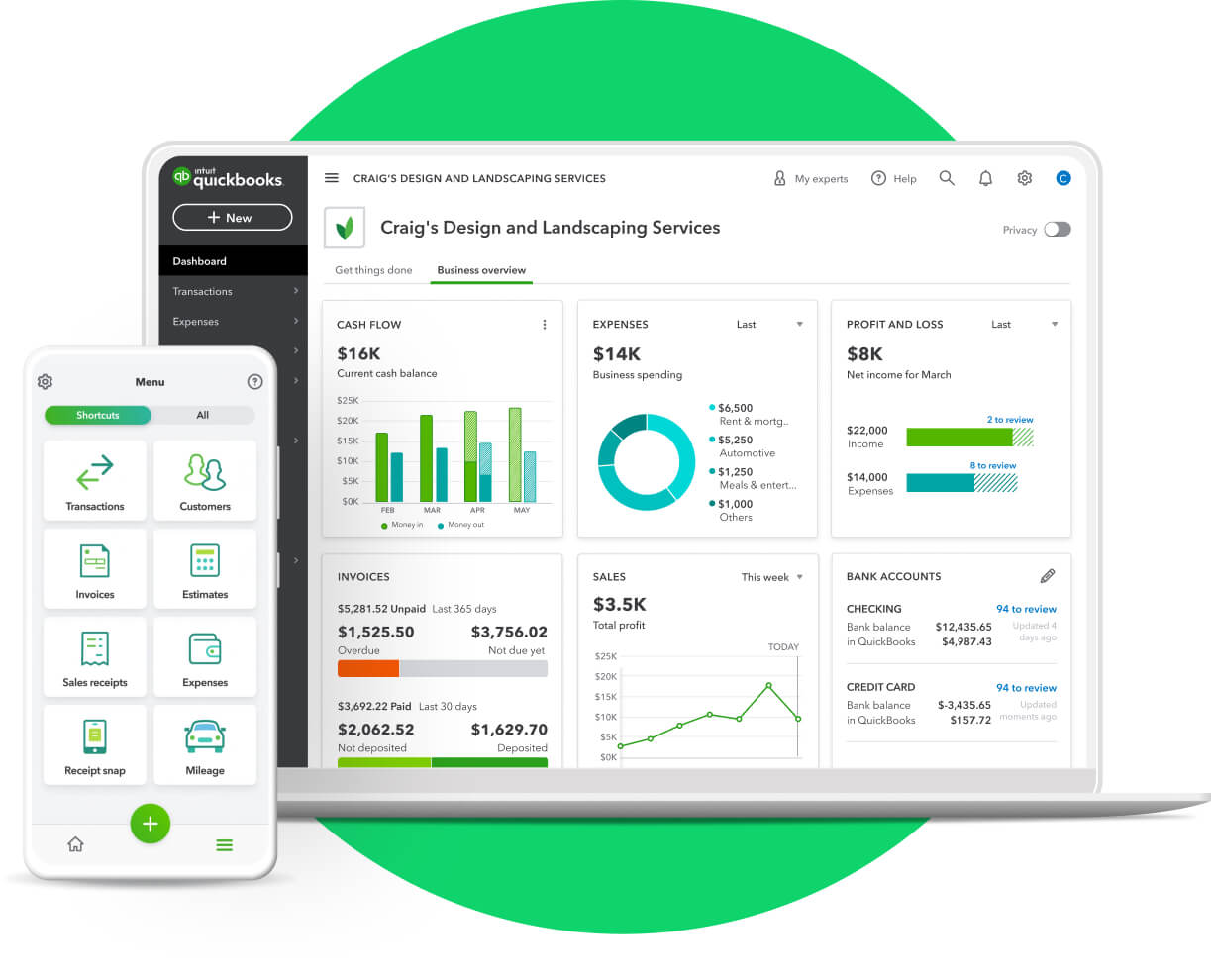In the excitement of starting a new business, one important step is all too often overlooked—setting up an accounting process. By prioritising a flexible and reliable process right from the start, you’ll save yourself time and money in the long run.

Accounting systems for new businesses
What is small business accounting?
Accounting is the process of tracking and recording the money that comes in and goes out of a business. At its core, it helps you track your income and expenses, better manage your business and stay on top of taxes.
Tip: Resources like the free QuickBooks Accounting Glossary can help you better understand common accounting terms as you come across them in your journey.
Tracking money-in and money-out
It’s important to track your business income (e.g. paid invoices and sales receipts) and expenses (e.g. petrol or shipping costs). This practice, also known as bookkeeping, helps you understand your profitability, manage your cash flow (so you have enough money to pay bills) and is critical for you or your tax agent to do tax returns.
Important reports to help manage your business
There are three main financial statements in accounting, and each focuses on a particular aspect of your business finances.
- Profit & Loss statement: Also known as an Income Statement, the profit & loss statement lists your sales and expenses and shows how much you're making or losing over a given time. It’s often used to develop sales forecasts and to guide pricing for goods and services.
- Balance Sheet: the balance sheet provides a snapshot of the financial health of your business. It lists your business assets (what you own) and liabilities (what you owe) at a specific moment in time.
- Statement of Cash Flows: the statement of cash flows shows an estimate of your future sales and expenses. It can be used to understand if you will have enough cash to cover upcoming expenses.
Staying on top of taxes
Tax is one of the more daunting aspects of business for many new owners. While mistakes can be costly, the right processes and support can make your tax obligations less taxing. If in doubt, be sure to work with a BAS agent or tax agent.
Here are some key taxes and tax events for Australian businesses:
- GST: The Goods and Services Tax is a 10% tax that you add to your sale price. GST should only be collected if you’re registered for GST.
- Taxes for employers: Pay As You Go withholding is a tax many employers pay to the ATO (Australian Taxation Office) on behalf of their employees. Employers in some states and territories are required to pay payroll tax as well.
- BAS: A Business Activity Statement is submitted by most GST registered businesses on a quarterly basis. The ATO uses the information on your BAS to calculate tax obligations like GST.
- Income tax: income tax is a tax paid on a portion of profits.
Managing the end of financial year
The Australian financial year starts on 1 July and ends twelve months later on 30 June. The end of the financial year is an important time of the year when businesses need to ensure they have submitted all necessary reporting requirements to the ATO. Use the free QuickBooks end of financial year checklist to stay organised and prepared for tax time.
Open a business bank account
Keeping your personal and business finances separate can help you maintain accurate records, understand the financial health of your business and make better informed decisions.
While sole traders aren’t required to have a business bank account (partnership, company and trust structures are), they are still a good idea. Opening a business bank account before you start incurring costs or receiving payments saves you from headaches in the future.
Should I do it myself or get someone to do it for me?
Many small business owners outsource their accounting to an accountant or bookkeeper—also known as an advisor. While that can save you a lot of time, you still need access to tools to help you review your finances month to month.

With cloud accounting software like QuickBooks Online you can invite your advisor to collaborate on your books. This gives you the option to outsource the aspects you’d rather not do, while still retaining control and visibility of your business.
For those who prefer to do it all themselves. QuickBooks Online helps automate accounting tasks like getting paid, tracking income and expenses and staying on top of tax obligations. A free guided setup session will get you up and running fast, and if you ever get stuck, support is available via phone or chat.
Keep your finances current and carry on
It’s important for all small business owners to keep an accurate record of financial activities throughout the year. No matter how you choose to do it, make sure to keep your financial records current, review your performance regularly and make a habit of forward planning. With the right systems in place, you’ll be set up for success.
Related Articles

TAKE A NO-COMMITMENT TEST DRIVE
Your free 30-day trial awaits
Our customers save an average of 9 hours per week with QuickBooks invoicing*
By entering your email, you are agree to our Terms and acknowledge our Privacy Statement.


















